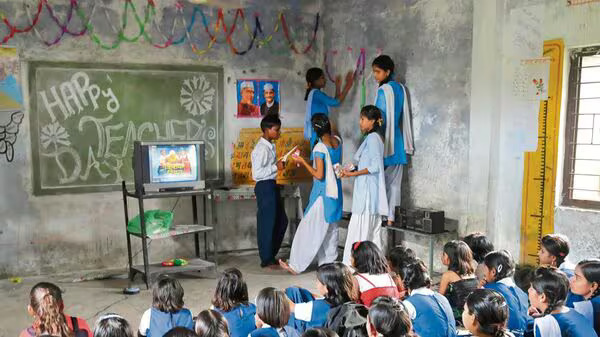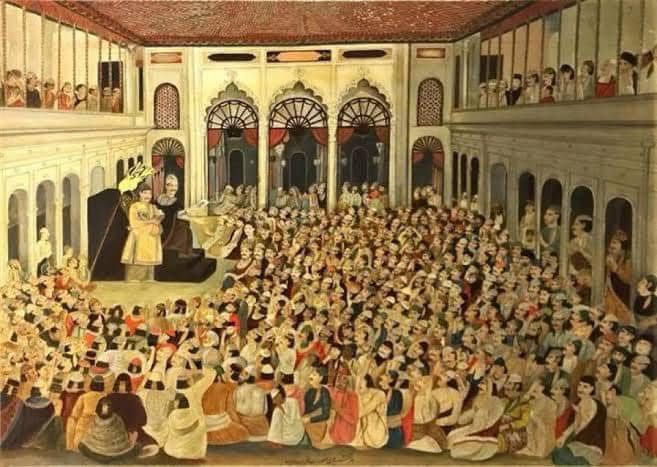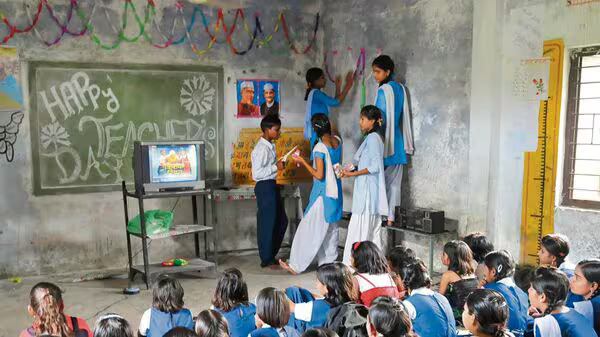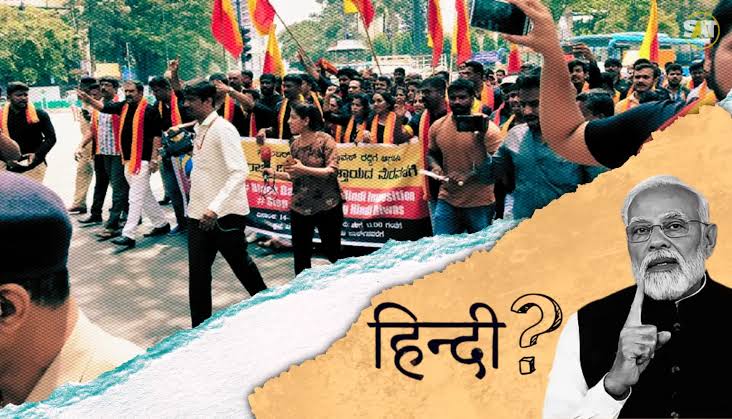Power in the Classroom

In a state where promises of “good governance” were meant to dismantle the very roots of corruption and favoritism, Bihar today finds itself caught in a familiar web of political privilege and public frustration. The recent appointment of Ashok Choudhary—Bihar’s sitting Rural Works Minister—as an Assistant Professor of Political Science in a state university has not just triggered controversy; it has exposed a deeper malaise in our democratic and educational systems. That a minister with 25 years of legislative experience, numerous perks, and continuous access to the state machinery would seek refuge in an academic post reserved for aspirants—many of whom are struggling with unemployment—raises more than eyebrows; it demands serious scrutiny.
What does it say about a system where someone already wielding political power chooses to occupy one of the few remaining paths to upward mobility for the marginalized? Can such a move ever be justified by credentials or merit alone, especially when it is executed within the shadow of an upcoming election and a crumbling public hiring process? The government claims that Choudhary fulfilled all eligibility norms and applied like any other candidate. But the reality is far more layered: the recruitment process itself took five years to complete—an outrageous delay in a state already haunted by administrative lethargy. During this entire period, Choudhary remained a minister, and now, without resigning from his post, he has secured another powerful seat—this time in the classroom.
Are we to believe this is merely a coincidence, or is it a calculated safeguard for the post-election uncertainty that looms over Bihar’s political landscape? Is this appointment an act of public service—or a cynical attempt to secure continuity in status, power, and privilege? Even if Choudhary pledges not to draw a salary, can he ethically justify occupying a position that countless unemployed, overqualified young people desperately needed? More disturbingly, is this yet another way for politics to penetrate academia—not to educate, but to influence?
In a country already battling rising joblessness and broken public trust, this incident isn't just an isolated controversy—it is a symptom of a larger disease: when those in power believe they are entitled to everything, including the limited hopes of the powerless. The real question now is not what Choudhary did, but what the rest of us will tolerate.
A System Built for the Powerful, Not the Deserving
Ashok Choudhary’s appointment as Assistant Professor in a state-run university did not break the law. Selected through the Bihar State University Service Commission (BSUSC) under the Scheduled Caste quota, his name appeared among 275 others declared successful in June 2025. He claims to have “fulfilled all qualifications” and has even promised not to draw a salary.
But these claims, no matter how noble in tone, fail to address the core ethical dilemma: when a sitting minister with 25 years of political tenure and all the advantages of power occupies a teaching post in a state with massive youth unemployment, it becomes not a question of qualification—but of equity.
Bihar’s higher education system is in crisis. Out of the 4,638 teaching posts advertised in 2020, less than 2% were filled over five years. This glacial pace of recruitment forced thousands of aspirants to put their lives on hold, reappear for retests, or age out of eligibility altogether. Many of them, especially from backward and marginalized groups, saw this as their only ladder out of poverty.
For them, Choudhary’s appointment feels like a betrayal—an emblem of how the system works faster for those who already have a seat at the table.
He may legally qualify, but morally, his appointment weakens faith in the very process he claims to respect.
The symbolism is jarring: While lakhs of young people queue up outside examination centers with broken slippers and hope in their eyes, the corridors of power seem reserved for those who already reside in them.
From Public Office to Public Lecture:
Choudhary’s defenders insist he earned the post and that his decision to refuse a salary sets a precedent of “service over privilege.” But this rhetoric glosses over the very essence of the crisis. This is not about income—it’s about opportunity.
When a sitting cabinet minister applies for and receives an academic post, it suggests that public jobs are no longer about need or qualification—but about insulation. It is a way for politicians to ensure fallback options should the political tides turn. With Bihar Assembly elections looming later this year, many view this as a pre-emptive retirement plan—a way to retain taxpayer-funded relevance even after a possible electoral loss.
This pattern is not new in Indian politics. But the growing use of academic institutions as safety nets by politicians undermines not only the sanctity of the classroom but also the future of thousands who genuinely rely on such positions to rise in life.
Furthermore, it raises practical concerns: Can a full-time minister truly commit to teaching responsibilities? Choudhary has no documented classroom experience, and his ministerial duties have spanned decades. If he intends to serve students, will it be in person or in name only? Will his presence elevate education—or politicize it?
More dangerously, it introduces a new form of ideological gatekeeping. When politicians occupy classroom space, it can create an environment where dissent feels risky and conformity is rewarded. It erodes the open, critical thinking culture that universities are meant to foster.
Whose Universities Are These?
The real casualty here is public trust. Across India, and especially in states like Bihar, government teaching positions are seen as one of the last remaining paths to upward mobility. They offer not just financial stability, but social dignity—especially for marginalized communities.
But what happens when those roles are quietly claimed by the very individuals who already dominate public life?
According to the Centre for Monitoring Indian Economy (CMIE), as of June 2025, graduate unemployment in India stood at 18.5%—with higher spikes in states like Bihar and Jharkhand. More than 5 crore educated young Indians are either unemployed or underemployed. For them, each delayed exam, each manipulated shortlist, and each politically influenced appointment is not just a personal setback—it’s a systemic message: the ladder to success is broken.
Let’s not forget the larger pattern here. Bihar has been rocked by recruitment scams in 2012, 2015, and as recently as 2022, especially involving school teacher appointments. Delays, cancellations, and corruption have become normalized. The perception that one needs “connections” to secure government jobs is now widespread—and dangerous.
In that context, Choudhary’s move sets a chilling precedent. If ministers can write exams while in office, if they can slide into roles meant for those at the bottom of the socioeconomic pyramid, then what, really, is left for the common citizen?
It becomes not just an issue of legality or timing—but of fundamental fairness.
The line between public service and self-preservation is wearing thin. Once upon a time, leaders—especially those from socialist or Leftist traditions—entered public life with a spirit of sacrifice. Today, power not only insulates—it multiplies. Those in office aim to extend their reach into media, corporations, judiciary, and now, academia.
Ashok Choudhary may view his transition into teaching as a natural extension of his public service. But to the youth of Bihar, it appears as yet another instance of their future being mortgaged for someone else’s continuity.
This is not about denying capable people their second careers. It’s about timing, transparency, and balance. Should public servants be allowed to apply for critical state posts while still holding office? Shouldn’t there be cooling-off periods, independent vetting committees, or public scrutiny of such crossovers?
And why did it take five years to conduct and finalize appointments for posts that were supposed to improve the state's higher education ecosystem? Why was there no regular update from the BSUSC or the government? Why have aspiring professors—many of whom have cleared NET or Ph.D. programs—been made to wait endlessly while ministers leapfrog the process?
Until these questions are honestly answered and reforms are introduced, we cannot claim to be a meritocratic society.
A Crisis of Trust, Not Just Procedure
At its heart, this controversy is not about one man or one job. It’s about what kind of society we are becoming. One where power is not a responsibility but a resource to hoard. One where institutions meant to serve the people now serve the privileged. And one where merit, effort, and hope are regularly displaced by influence.
Ashok Choudhary may go on to teach. He may inspire some students. He may even forgo all perks. But what he represents in this moment is far larger than his own actions—it is a crisis of belief.
The belief that government exams offer a fair shot. The belief that hard work pays off. The belief that the system, even if slow, is just.
If these beliefs continue to be undermined by political opportunism masked as merit, we risk not just academic dilution—but democratic decay. Because when the powerless lose even the hope of opportunity, all that remains is resentment.
And in that resentment, no society can grow—let alone educate.

 5 hours ago
5 hours ago





[[comment.comment_text]]